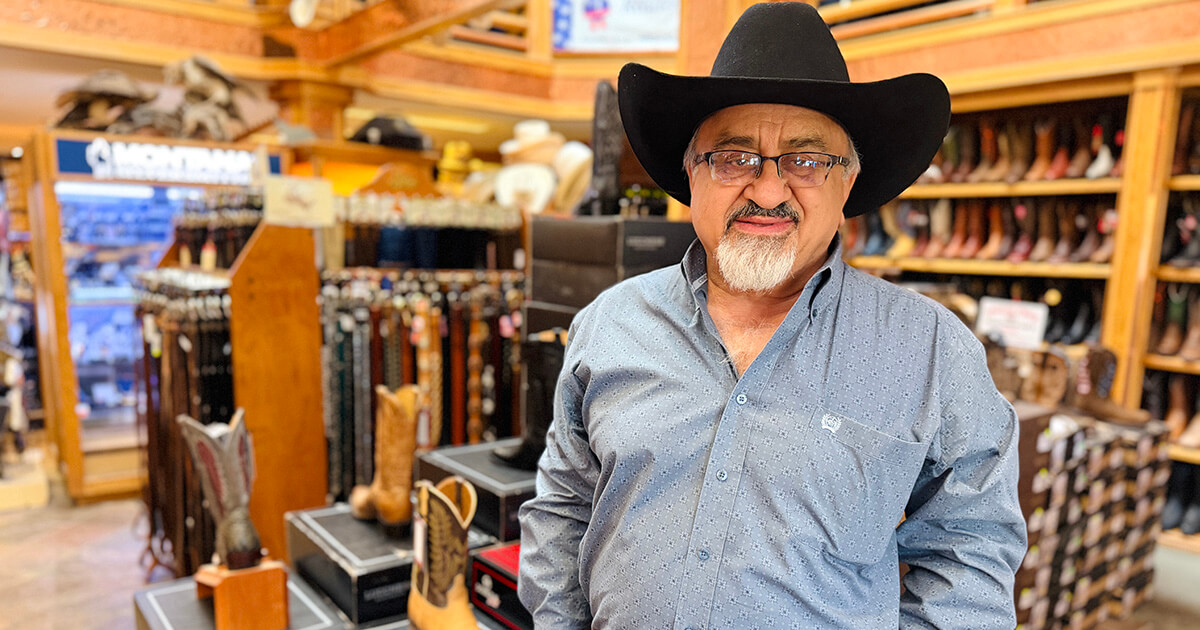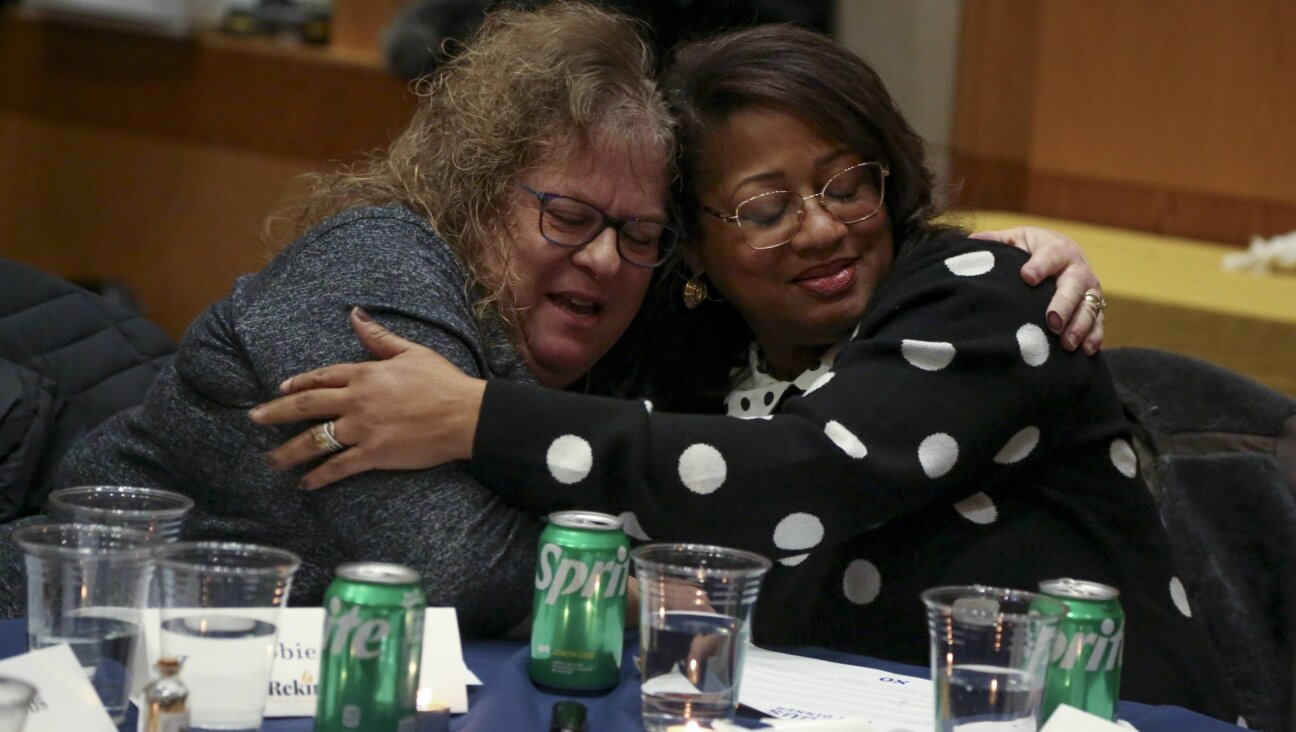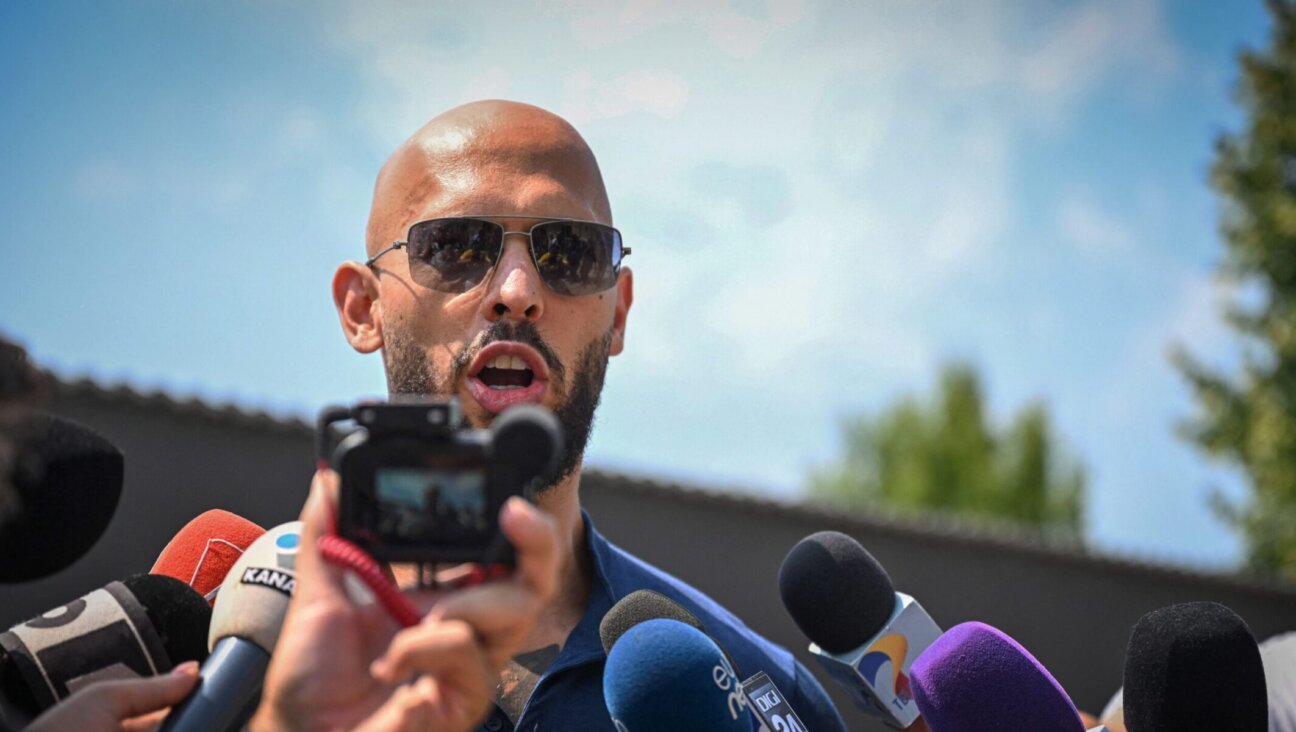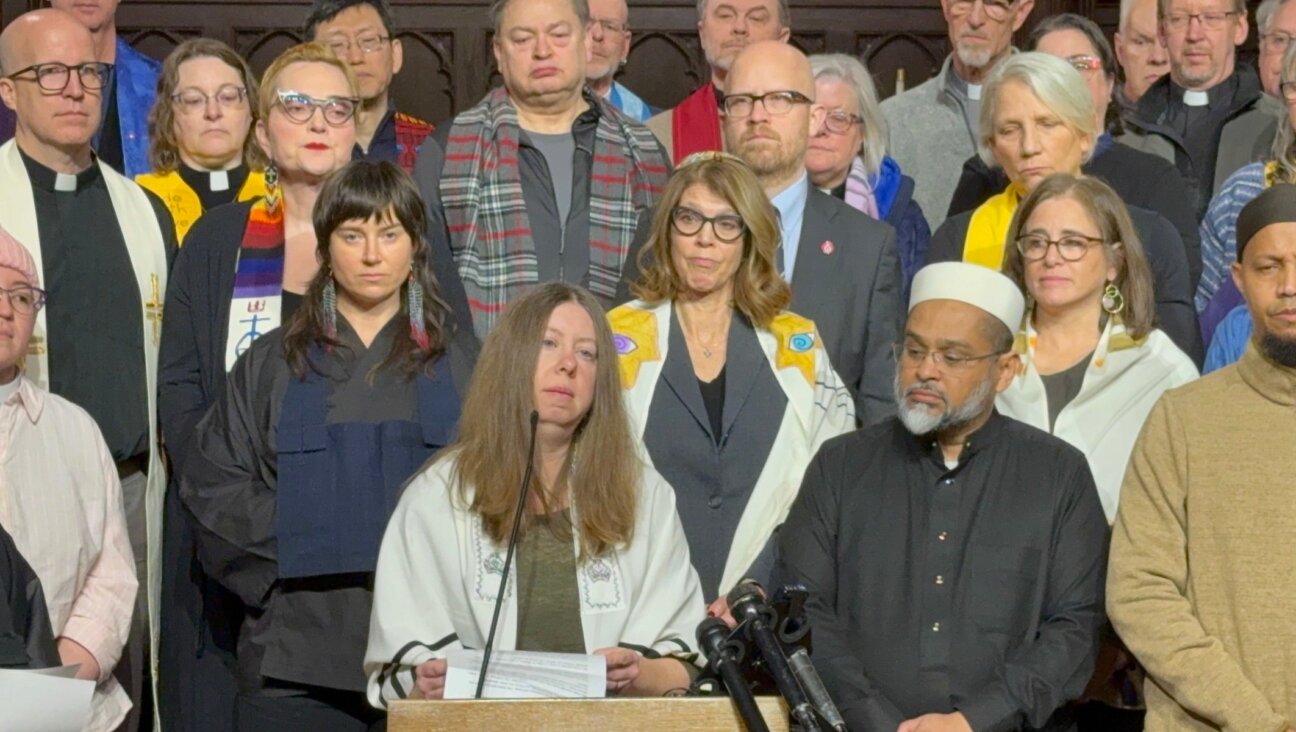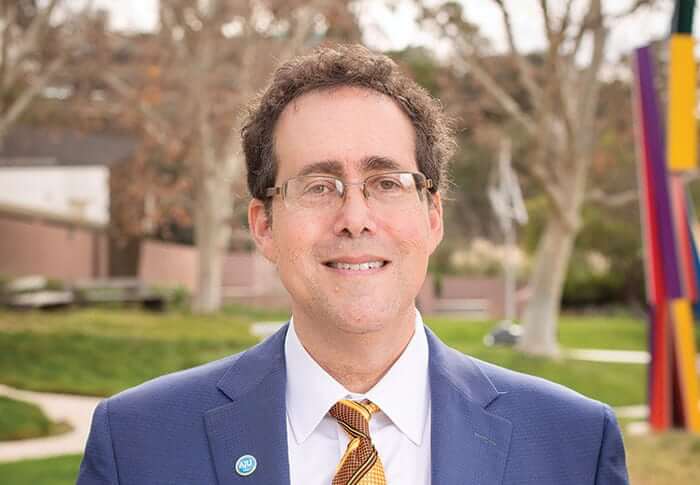Zionist Election Has High Stakes, Strange Pairings
Although America’s midterm congressional elections are a year away, balloting is underway right now for another congress with high stakes and some very strange political bedfellows.
The election will choose the 145 American delegates to the World Zionist Congress, a quadrennial event scheduled to convene in Jerusalem in June 2006. While the voting has drawn little notice so far from rank-and-file American Jews, maneuvering for position has been intense among the would-be delegates and the organizations that have nominated them.
Delegate slates include a veritable Who’s Who of Jewish organizational insiders, with a liberal sprinkling of political and cultural celebrities. Candidates include New York State Comptroller Alan Hevesi, former New York mayoral candidate Ruth Messinger and folk singer Theodore Bikel.
The stakes are not insubstantial. The congress, with delegations from some three dozen countries, will elect the officers of the World Zionist Organization, who will then become the top management of the Jewish Agency for Israel, the $300 million-a-year behemoth that is Israel’s largest social-service body. Congress delegates will also choose half the members of the Jewish Agency’s governing board and will vote on policy questions involving Israeli politics and Israel-Diaspora relations, including religious pluralism issues.
Mail balloting for the Zionist congress began in mid-November and will continue through February 2006. Voting is open to any Jewish American aged 18 or older after registering and paying a nominal fee. Recent elections have drawn as many as 220,000 registrants.
With so many notables running, there were bound to be some colorful pairings. Right-leaning establishment pillars, including New York attorney Kenneth Bialkin and Yeshiva University Chancellor Norman Lamm, find themselves running on the same slates as political firebrands known for confrontational tactics. Cosmetics heir Ronald Lauder, a major supporter of New York Governor George Pataki, finds himself pitted against one of the governor’s aides on opposing slates. The Zionist Organization of America — a strong opponent of Israel’s territorial concessions — is posting campaign literature featuring a quote from Senator Hillary Rodham Clinton praising the organization.
Bialkin, former chairman of the Conference of Presidents of Major American Jewish Organizations and a lawyer at the white-shoe Manhattan firm Skadden Arps, is third on the ZOA slate, which also includes several right-wing activists known for confrontational tactics. One is Irving Moskowitz, the owner of a controversial California casino, who has come under considerable criticism for building Jewish housing projects in mostly Arab neighborhoods of Jerusalem, occasionally leading to violence and international incidents. Another is brash New York public relations wizard Ronn Torossian, a one-time college activist known his headline-grabbing publicity work on behalf of such clients as jailed rapper Lil’ Kim.
Bialkin declined to comment. The president of ZOA, Morton Klein, who heads the organization’s slate, said that Moskowitz had been criticized “simply for buying land in Jerusalem legally from Arabs” and that “we should be grateful to Irving Moskowitz for saving Jerusalem.”
The ZOA slate’s campaign literature contains a quote from Clinton — who has been a backer of the peace process — lauding the group for working “tirelessly to safeguard Israel, as well as to promote democratic values and true peace throughout the Middle East.”
Like Bialkin, Lamm, the chancellor of Yeshiva University and a noted voice of moderation in the Modern Orthodox community, is on the same slate as several more radical figures. The Religious Zionist slate includes some vociferous foes of Israel’s Gaza pullout, including the president and executive vice-president of the National Council of Young Israel, Shlomo Mostofsky and Rabbi Pesach Lerner, and the firebrand rabbi of Teaneck, N.J.’s Congregation Bnai Yeshurun, Steven Pruzansky. The Young Israel officials organized public gatherings here to oppose the 2005 disengagement and sent missions of American Jews to Gaza to show support for settlers resisting the pullout. Pruzansky is known for his fierce attacks on backers of Israeli territorial concessions, and has been criticized for using religious rhetoric that his critics call incitement.
Lamm told the Forward that he saw no conflict in uniting with harsh critics of the Israeli government. “In Israel itself, the national religious groups have united” after the disengagement, he said. “I disagree with Rabbi Pruzansky from A to Z, but we agree there should be a strong religious Zionist movement.”
Another delegate on the Religious Zionist slate, Stephen Savitsky, president of the Union of Orthodox Jewish Congregations of America, agreed. “We may have different tactics, but everyone wants to work within the system,” he said.
Lauder and Governor Pataki’s Jewish community liaison, Karen Paikin, may agree when it comes to Empire State politics, but they are combatants in the WZO elections.
Lauder, lay president of the Jewish National Fund, heads the slate of the American Zionist Coalition, a coalition of centrist groups. Paikin is running on the competing Likud list, a right-of-center slate allied with the Israeli party of the same name. Her candidacy appeared to leave her open to the charge, widely circulated on the Internet this week, that a government liaison to the Jewish community should stay out of communal ideological debates.
Pataki has been embarrassed in the past by an aide voicing controversial views on the Middle East. In 1995, the governor’s community-relations director, Shoshana Hikind, called in a Manhattan speech for the deposing of Israel’s dovish deputy foreign minister, Yossi Beilin. “We in the American Jewish community will do everything in our power to put you and your government out of business,” Hikind said. Pataki later distanced himself from the remarks.
A former Pataki Jewish liaison, Jeffrey Wiesenfeld, said he supports Paikin’s decision to take part in the WZO elections. “It’s expected that most of the Jews surrounding Republicans have a conservative point of departure and would ally themselves with Likud,” he said. He added, “There’s a difference between allying yourself [with one faction] and advocating the overthrow of the Israeli government.”
Paikin defended her joining the Likud slate, writing in an e-mail that she is running “as a personal commitment, not in my official capacity as assistant to the governor.”
The governor’s press office did not respond to calls seeking comment.
The liberal religious movements — major vote getters in recent Zionist congress elections — are fielding slates thick with their own luminaries. The Mercaz slate of Conservative Judaism is led by the retiring chancellor of the Jewish Theological Seminary, Rabbi Ismar Schorsch, while the slate of the Association of Reform Zionists of America is led by the president of the Union for Reform Judaism, Rabbi Eric Yoffie.
The Dor Zion slate, which represents the non-ideological strain of Zionism identified with Hadassah, sports Hevesi as well as former Hadassah president Marlene Post and publisher and Soviet Jewry activist Yosef Abramowitz.
A spokesman for Hevesi, David Neustadt, said that his boss was so low on the Dor Zion slate that he “has absolutely no chance of being elected.” Hevesi agreed to run because he was asked by the executive director of B’nai Zion, one of the Dor Zion slate’s sponsoring organizations, Neustadt said. Hevesi is a former B’nai Zion chairman. Longtime Zionist observers remembered that in the late 1980s, when Hevesi was a New York State assemblyman, he ran on the center-left Friends of Labor Israel slate.
The Hatikva slate, an omnibus left-liberal group, includes Messinger, a former New York mayoral candidate who now heads the American Jewish World Service. The slate also includes actor-singer Theodore Bikel and Forward executive director Samuel Norich. The Green Zionist Alliance, an environmentalist-peace slate, features activist Rabbi Arthur Waskow and religious studies professor Susannah Heschel, daughter of the late Rabbi Abraham Joshua Heschel.

